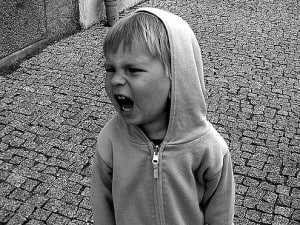 Oppositional Defiant Disorder (ODD) is characterized by symptoms and behaviors that fall into three different categories including:
Oppositional Defiant Disorder (ODD) is characterized by symptoms and behaviors that fall into three different categories including:
- Angry/Irritable Mood – often losing temper, being easily annoyed, often being angry and resentful
- Argumentative/Defiant Behavior – arguing with authority figures, actively defying or refusing to comply with requests, deliberately annoying others, blaming others for his/her mistakes
- Vindictiveness
In order for a person to be diagnosed with ODD, they must exhibit at least 4 symptoms and/or behaviors that are characteristic of the disorder and these symptoms/behaviors must cause distress to the individual or those close to the individual such as friends, family members, and co-workers. Lastly, ODD can vary in severity from mild to moderate to severe depending on the number of settings in which the individual exhibits symptoms/behaviors.
According to the Diagnostic and Statistical Manual of Mental Disorders, Fifth Edition (2013), the prevalence of ODD ranges from 1% to 11%, with an average prevalence rate of 3.3%. The disorder is more prevalent in males than in females before adolescence, but then evens out in adolescence and adulthood. The first symptoms of ODD often arise during the preschool years with their frequency often increasing during this time and into adolescence. ODD may also precede the development of conduct disorder and increases the risk of developing anxiety disorders and major depressive disorders as well. Risk factors for developing ODD include temperamental factors that lead to emotional dysregulation; harsh, inconsistent, or neglectful parenting practices; and a number of neurobiological markers (e.g., lower heart rate and skin conductance reactivity; reduced basal cortisol reactivity; abnormalities in the prefrontal cortex and amygdala).
What are the most effective and evidence based treatments for ODD?
Due to the stress that this disorder can cause in the individual as well as those around him/her, and the comorbid conditions that may develop such as anxiety and depression, early intervention is crucial. According to the American Academy of Child & Adolescent Psychiatry (2009), Oppositional Defiant Disorder treatment usually includes a combination of:
- Parent Management Training and Family Therapy to teach parents and other family members how to better manage their child’s behaviors through positive reinforcement of appropriate behavior and consistent discipline strategies.
- Cognitive Problem-Solving Skills Training to teach children more appropriate ways of handling stressful situations.
- Social Skills Programs and School-Based Programs to teach children how to interact appropriately with peers and improve their schoolwork.
- Medication to help manage the more distressing symptoms as well as symptoms due to comorbid disorders such as anxiety and depression.
According to Comer, et al. (2013) behavioral treatments that target behavior problems indirectly through helping parents develop different parenting techniques with the goals of increasing in-home predictability, consistency and follow through, and effective discipline have been the most studied forms of psychosocial treatment for ODD. These treatments help parents end negative coercive cycles through helping them increase positive attention for appropriate behaviors, ignore negative attention-seeking behaviors, and provide consistent time outs for noncompliance. Some of these best practices include:
- Parent-Child Interaction Therapy (PCIT) – Designed for children between the ages of 2 and 7 years-old that focuses on developing a secure attachment between the parent and child by teaching parents how to use positive attention to increase positive behaviors and consistent limit setting to decrease negative behaviors. Sessions include teaching of the skills with live coaching through a one-way mirror. Results include more positive parent-child interactions with increased compliance, social skills, language use, confidence and emotional regulation.
- Incredible Years – Designed for children up to 12 years-old and includes:
- A parenting program focused on strengthening parent-child interactions and attachment, reducing harsh discipline and fostering parents’ ability to promote children’s social, emotional, and language development.
- A child program focused on strengthening children’s social and emotional skills, such as understanding and communicating feelings, using effective problem-solving strategies, managing anger, practicing friendship and conversational skills, and behaving appropriately in the classroom.
- A teacher program focused on strengthening teachers’ classroom management strategies; promoting student’s prosocial behavior, emotional self-regulation and school readiness; and reducing children’s classroom aggression and noncooperation with peers and teachers.
- Triple P-Positive Parenting – For children up to 13 years-old that focuses on teaching parents simple and practical strategies to help them confidently manage their children’s behavior, prevent problems from developing, and build strong, healthy relationships.
- Helping the Noncompliant Child (HNC) – A skills-training program aimed at teaching parents how to obtain compliance in their children ages 3 to 8 years old.
As this is not an all-inclusive list of treatment options for ODD and research is continually being done in order to identify current best practices, it is important to keep an eye on the literature in order to ensure that the best approach is being used. Although having a child with ODD can be stressful and trying, as one can see, there are a lot of treatment options that have been identified as being highly effective in decreasing oppositional and disruptive behaviors and therefore progress can be made.
The following resources were utilized in the development of the above:
American Psychiatric Association. (2013). Diagnostic and Statistical Manual of Mental Disorders (5th ed.). Washington, DC: American Psychiatric Publishing.
American Academy of Child & Adolescent Psychiatry. (2009). ODD: A Guide for Families. Retrieved from https://www.aacap.org/App_Themes/AACAP/docs/resource_centers/odd/odd_resource_center_odd_guide.pdf.
Comer, J.S., Chow, C., Chan, P.T., Cooper-Vince, C., & Wilson, L.A.S. (2013). Journal of the American Academy of Child and Adolescent Psychiatry, 52(1), 26–36. doi:10.1016/j.jaac.2012.10.001.





